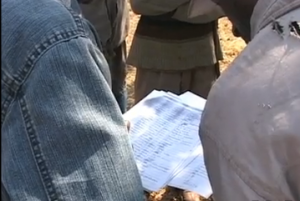Anywaa Survival Organisation-ASO
Involving, Caring and Empowering indigenous People Press Release March 11, 2010 The Ethiopian Government’s Secret Land Grab DealsIt has become apparent that the current Ethiopian government has decided to lease out vast fertile farmlands to foreign governments and multinational corporations in Gambela, Oromia, Southern Nations, Nationalities and People and Benishangul-Gumuz regions in Ethiopia. Further negotiations are underway in other regions of the country, the terms of contracts in all cases remain secret, and without consultation and compensation to indigenous people who have lived there for generations. The government claims it is signing these deals for economic growth and development in a country that have been largely dependent on international food aid and assistance.

- Appeal to all Ethiopians from all walks of life and political affiliations to consider their stands on the land lease policy of the government in the interest of stability, sustainable economic growth and development in the country;
- Require the authorities and officials involve critically investigate and revise the processes, systems and economic and social costs of long-term farmlands lease;
- Recommend federal authorities and respective regional administrations to take necessary and appropriate steps to halt all multinational companies operations and revise terms of lease contracts to involve indigenous people whose lands are affected, prominent individuals and organisations to highlight major issues surrounding the long-term land lease programmes;
- Require Ethiopian people both in the government and in opposition to pay attention and understand the long-term consequences of the government farmlands lease policy upon the live and livelihood of the Ethiopian public whose survival depends on access to farmlands;
- Call upon the authorities and officials to be transparent and accountable to their citizens by accurately releasing essential information of contracts documents and any studies conducted that includes indigenous people whose lands are affected in arriving at various land lease contracts and their subsequent implementations so that the citizens remain informed of important issues affecting their lives;
- Call upon the Ethiopians at home and abroad to take note of consequences of long-term leases of farmlands to foreign governments and companies including its potential to undermine the future existence of Ethiopian people who entirely depend on agricultural food production now and for future generations;
- Require the international, community, organisations and individuals concerned with the rapid land lease policy in Ethiopia to put pressure on the authorities to halt the implementation of contracts underway and open up constructive debate on land lease policy in the country ;
- Hold the companies accountable for damage they have brought upon the environment and the indigenous people affected.
For further details and information, please contact:
Nyikaw OchallaDirector,
Anywaa Survival Organisation-ASO Send your comments to: [email protected]













